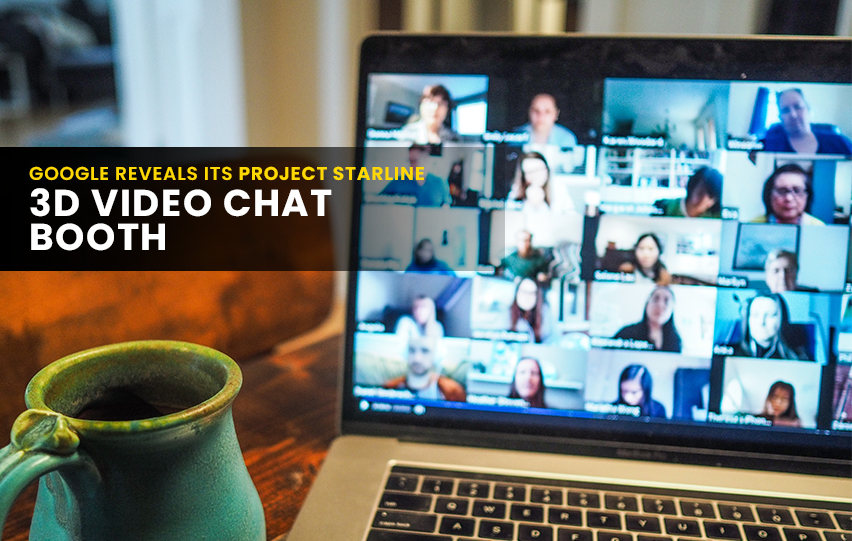Google has recently revealed a prototype technology called Project Starline. It allows individuals on a video call to be displayed in 3D even though they are physically located somewhere else.
Project Starline is a video chat booth that has custom-built hardware and advanced specialized equipment that allows you to see the person you are talking to in the 3D form.
The video chat technology captures a person's appearance using a "light field display system," which consists of multiple cameras and sensors and then renders it into a 3D model.

According to Clay Bavor, Google’s Vice President, the entire technology combines machine learning, computer vision, real-time compression, and spatial audio.
He said, “The effect is the feeling of a person sitting just across from you like they are right there.”
“One of the things we are most proud of is that as soon as you sit down and start talking, the technology fades into the background, and you can focus on what's most important: the person in front of you,” he added.
A few years ago, Project Starline was started by a company that hopes to provide users the experience of being physically close to people even though they were located in a different country or city.
Owing to its reliance on custom-built hardware and highly specialized tools, the video conference booth is currently only available at certain Google offices.
Recently, Google says that it began running demos with numerous media and healthcare firms. These demos will help to gather inputs on its functionality after many hours of testing in the offices throughout Seattle, New York, and the Bay Area.
Even though the booth is still in progress, the company is already preparing trial launches with these firms later this year.
Additionally, Google aims to make this technology relatively affordable and available, which includes adding some of these technological advances into the collection of their communication products.
“We’re really excited about the progress we’re making with Project Starline, and the technology’s potential to solve the important problem of wanting to be together with someone even when you physically can’t. We look forward to sharing more later this year,” Bavor said.
At this year's Google I/O, the leading search company has unveiled two AI-powered innovations. The first of which is a dermatology assistant app, and the second of which is an artificial intelligence-powered health campaign that could eventually become a tuberculosis screening tool.
















